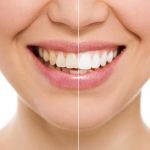Can Cavities Heal on Their Own?
As we age, dental health becomes increasingly important, and a common question that arises is: Can cavities heal on their own? Many people might hope that cavities, the small holes that form in our teeth due to decay, could fix themselves without the need for costly dental treatments. In this article, I'll explore the possibility of cavity healing, what affects the process, and why timely dental care is so crucial to maintaining oral health.
Understanding Cavities and Tooth Decay
To answer the question, it’s essential first to understand what a cavity is. Cavities are areas of decay that form when plaque, the sticky layer of bacteria and food particles that forms on teeth, begins to break down the tooth's enamel. This decay process is typically caused by poor oral hygiene, sugary diets, and lack of regular dental care. Once a cavity forms, it can progress deeper into the tooth, affecting the dentin and potentially reaching the pulp, where the nerves and blood vessels reside.
The Myth of Self-Healing Cavities
The notion of cavities healing on their own is a common misconception. Unfortunately, once the enamel is damaged to the point where a cavity has formed, it does not regenerate on its own. While enamel can remineralize in the very early stages of decay, this process is not sufficient to repair a cavity once it has created a hole. Remineralization can occur through fluoride treatments, calcium, and phosphate, but these measures are most effective when the damage is minimal.
The Role of Remineralization
It's important to differentiate between the natural remineralization process and a full recovery from a cavity. If you catch a cavity early—before it has fully penetrated the enamel—certain treatments, such as fluoride toothpaste and professional fluoride treatments, can help remineralize the tooth. This doesn’t mean the cavity will “heal,” but the process can help restore some of the mineral content to the enamel, preventing further decay.
Can Early Cavities Be Stopped From Getting Worse?
Yes, in some cases, if cavities are detected early enough, their progression can be halted or significantly slowed down. The key is to intervene before the cavity has created a hole. Regular brushing with fluoride toothpaste, flossing, and visiting the dentist for regular checkups can prevent early-stage decay from turning into full-fledged cavities. Dentists might use fluoride varnishes or sealants to protect the enamel from further damage.
Why Cavities Don’t Heal Without Treatment
The main reason cavities cannot heal on their own is because of the nature of enamel. Unlike other tissues in the body, enamel doesn’t have living cells, so it can’t regenerate once it has been damaged. This makes early intervention and preventive care essential. Once the enamel is worn away, the damage is permanent, and the only way to treat it is through restorative dental procedures, such as fillings, crowns, or even root canals, depending on the severity.
How to Prevent Cavities and Maintain Good Oral Health
While cavities may not heal on their own, there are many steps you can take to prevent them from forming in the first place:
- Brush Regularly: Brush your teeth at least twice a day with fluoride toothpaste. Make sure to brush all surfaces of your teeth, including the backs and the chewing surfaces.
- Floss Daily: Flossing helps remove food particles and plaque from between your teeth that your toothbrush can’t reach.
- Limit Sugary Foods: Avoid sugary snacks and drinks, as sugar feeds the bacteria that cause tooth decay.
- Visit the Dentist Regularly: Schedule regular dental checkups and cleanings to catch any early signs of tooth decay.
- Use Fluoride: Fluoride helps strengthen tooth enamel and prevents cavities from forming. Consider fluoride treatments if recommended by your dentist.
The Importance of Timely Dental Care
Ultimately, while it may be tempting to hope for self-healing cavities, the best way to protect your teeth is through proactive dental care. Visiting your dentist regularly for checkups and cleanings ensures that any cavities or potential issues are caught early, preventing more serious problems down the line. Remember, cavities are preventable, and with the right oral hygiene routine, you can keep your teeth strong and healthy.







 Lasting Smiles Dental Care4.0 (364 review)
Lasting Smiles Dental Care4.0 (364 review) Leardi Family Dentistry4.0 (135 review)
Leardi Family Dentistry4.0 (135 review) Haddon Lake Dental Associates4.0 (21 review)
Haddon Lake Dental Associates4.0 (21 review) Reese Orthodontics: Karen Reese, DDS, MS4.0 (7 review)
Reese Orthodontics: Karen Reese, DDS, MS4.0 (7 review) North Cobb Endodontics5.0 (64 review)
North Cobb Endodontics5.0 (64 review) ADVANCED SMILES PC4.0 (205 review)
ADVANCED SMILES PC4.0 (205 review) The Importance of Oral Health Education During Pregnancy for a Healthy Pregnancy
The Importance of Oral Health Education During Pregnancy for a Healthy Pregnancy Best Tips for Brushing Your Teeth Properly for Healthy Gums: Essential Techniques for Oral Health
Best Tips for Brushing Your Teeth Properly for Healthy Gums: Essential Techniques for Oral Health Why Skipping Dental Checkups Can Lead to Bigger Oral Health Problems
Why Skipping Dental Checkups Can Lead to Bigger Oral Health Problems Advantages of Porcelain Dental Restorations
Advantages of Porcelain Dental Restorations How Can Diabetes Cause Tooth and Gum Problems? Preventing and Managing Oral Health Issues
How Can Diabetes Cause Tooth and Gum Problems? Preventing and Managing Oral Health Issues Healthy Habits for Promoting Good Oral Health and Hygiene: Tips for a Healthy Smile
Healthy Habits for Promoting Good Oral Health and Hygiene: Tips for a Healthy Smile